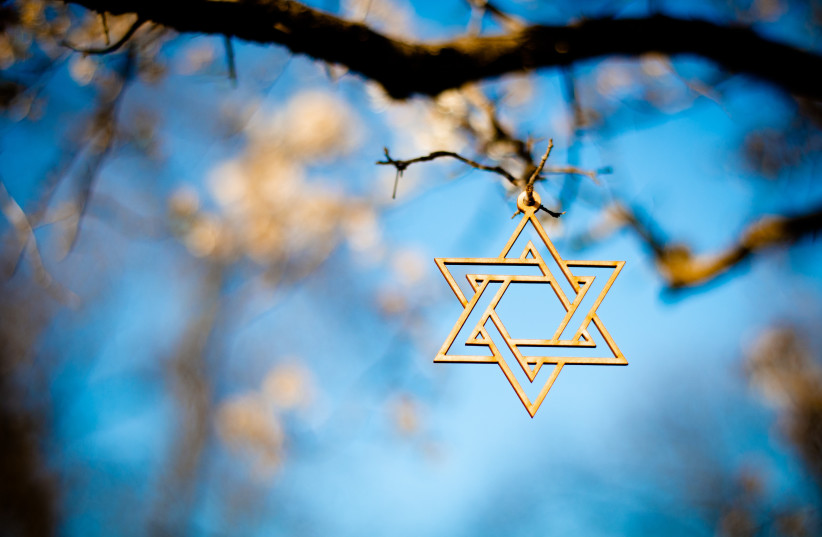While celebrating the New Year next week, Jews will also mourn the resurgence of Jew-hatred. This year’s two big questions – echoing throughout Jewish history – are “what do we believe” and “why do they hate us.” Many try separating those two complicated, compelling questions. Yet, they keep colliding and intertwining.
In fairness, as a multi-dimensional, 24/7 identity, being Jewish is both an internal and external process. This spiritual journey for believers in Judaism is also a national journey for the Jewish people. Nevertheless, we could keep ourselves busy enough trying to figure out what this identity means to us without the added stress of being so despised from far Left to far Right.
That confounding confluence of the positive and negative forces uniting us makes Chaim Grade’s classic short story, My Quarrel with Hersh Rasseyner timeless – and timely. Fortunately, Prof. Ruth Wisse has produced an exquisite new translation with an illuminating introduction to this 71-year-old story, beautifully published by the Tikvah Fund and Toby Press.
“The term ‘classic,’” Wisse explains, “is reserved for works that prove their lasting merit, with fresh appeal and critical interest to each new generation of readers.” Grade’s sensitivity in conveying both sides of the age-old secular-religious clash, while rooting the debate in the fresh trauma of the Holocaust, makes this 45-page story a classic – and the perfect text to read, ponder, teach and sermonize about this Rosh Hashanah.
Grade was the yeshiva dropout-turned-Yiddish-poet in the story, debating an old yeshiva-buddy-turned-rebbe. They engage in the familiar back and forth between the Jew who follows the Torah as God’s word, and the Jew who remains proudly Jewish, while doubting God.

By 1937, in the first chapter, the two friends have diverged, yet can still irk one another. “Hersh, the rebbe to be” mocks his vain ex-friend for writing “godless verses” while seeking approval from “those pork-eaters” who will “beat you” whenever they can.
“Chaim the rebel” sneers about his arrogant sounding yet ultimately insecure ex-friend: “You hang on to your fringes like a drowning man to a rope – but it doesn’t help you swim against the current.” Chaim rejects the pious Jew’s fear of temptation and posture of certainty that metastasizes into heartless contempt for Jews who stray from the path.
<br>The Holocaust and the Jewish rebel
THEN, BOOM! Two years later, the world is reeling from the crimes of Hitler and Stalin, “a booted ruler with a little mustache… in the West … and in the East a booted ruler with a big mustache.” Both suffer, but when they meet only Hersh blames modernity.
“Well, Chaim, are you satisfied now? Is this what you wanted,” Hersh asks bitterly. Chaim responds by poignantly saluting the unity our enemies impose on us, no matter our differences: “Hersh,” he sighs, “just because you consider me treif doesn’t mean that they consider me kosher.”
Finally, Grade has the two sparring partners meet in Paris, in 1948, having survived the churban, the destruction. Nevertheless, for all they have endured, their positions remain unchanged.
The Holocaust only confirmed for the secular Jew that there is no God. “Can you still believe?” Chaim asks incredulously.
Meanwhile, the religious Jew is more sure of God’s presence – even in the concentration camps. “How could I endure without God in this murderous world?” Hersh asks. The “devout person knows that always and everywhere he must keep rising higher and higher.”
Now a rebbe to survivor students, Hersh still blames the Holocaust on all the enlightened ideas that Chaim embraced. “You’ve sung me a fine hymn of praise to these putrid idols” of Western civilization,” the rebbe scoffs.
As their eternal debate cascades, both make excellent points worth exploring, making this a compulsively teachable book – a laudable companion to David Brandes’s 1991 movie The Quarrel. Wisse, a legendary teacher and scholar, who feels Jewish history and culture in her bones, understands the story itself as “an act of war, a subdued victory lap on the blood-soaked battlefield of Europe.” Despite Hitler, the Jews are still learning, exploring and arguing, because we survived.
Absorbing this brilliantly rendered clash, in the great Talmudic tradition, I yell “taiku” – it’s a tie.
Reb Hersh lands the hardest blows regarding Chaim’s loss of spirituality, embrace of superficiality, addiction to half-truths, and craving the cocaine-crack of goyish approval. “When you ran away from being Jewish, you disguised your flight with high-sounding phrases,” he laments. “An enlightened man would talk in the most elevated rhetoric about Enlightenment, but what he really had in mind was to become a pharmacist.” Ouch!
Beyond the banality of it all, Hersh sees how easy it is for believers to take on more and more commandments, and how hard it is for the rejecters’ kids, raised in their belief vacuum, to put on a kippah even for a moment.
Chaim celebrates the joy of doubt and the sacred challenge of juggling his “double responsibility – to Jewish tradition and to culture.” But he is most effective in exposing this rabbi’s – and the rabbis’s – heavy-handedness, closed-mindedness, and inexcusable contempt for the entire Jewish people. Our enemies never distinguish free-thinkers from believers; how dare we do it.
In short, 70 years later, Chaim Grade is still challenging us to not be so superficial in approaching spirituality, nor to be so unforgiving in approaching one another. From her perch as one of today’s great Jewish thinkers and leaders, Ruth Wisse gives us the greatest of New Year’s gifts.
“The debate in this story was never meant to end,” she concludes. “Thus may it continue.”
The writer is a distinguished scholar of North American history at McGill University, and the author of nine books on American history and four books on Zionism. He is the editor of the new three-volume set, Theodor Herzl: Zionist Writings, the inaugural publication of The Library of the Jewish People (www.theljp.org).
